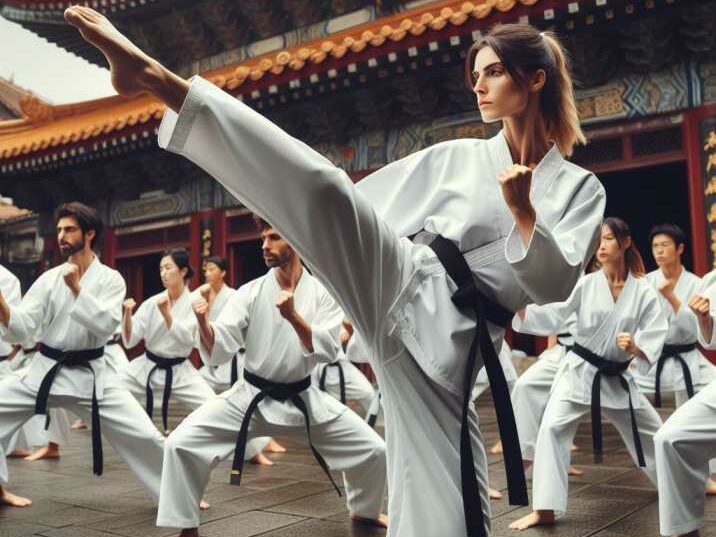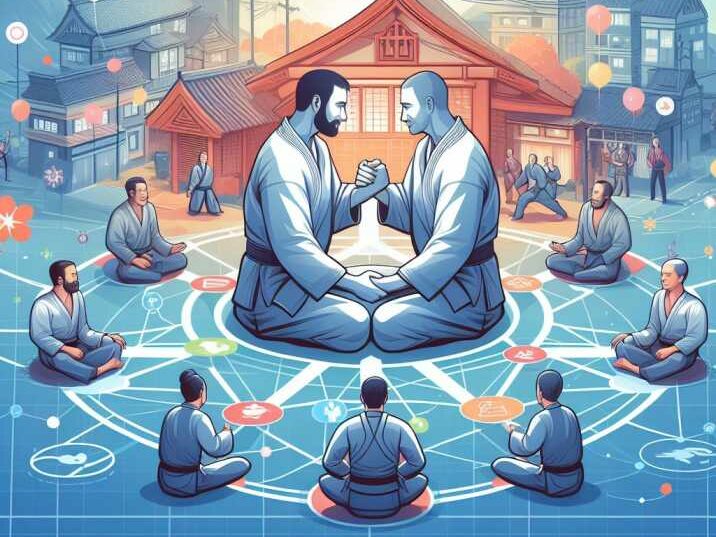Introduction :
Table of Contents
Post-Traumatic Stress Disorder (PTSD) is a complex and challenging condition that affects individuals who have experienced trauma. While traditional therapies are crucial in managing symptoms, there’s a growing interest in alternative approaches, such as martial arts. In this article, we delve into the question, “Is martial arts good for PTSD?” to uncover the potential benefits of this ancient discipline in aiding the journey towards healing and empowerment.

Understanding the Connection:
Martial arts, with its emphasis on discipline, focus, and self-control, offers a unique avenue for individuals grappling with PTSD. The structured nature of martial arts training aligns with therapeutic principles, providing a framework for healing. The physical and mental aspects of these practices work synergistically to address various PTSD symptoms.
Empowerment through Discipline:
One of the central tenets of martial arts is discipline, a quality particularly beneficial for those navigating the challenges of PTSD. The structured routines and rituals in martial arts training provide a sense of order and control, helping individuals regain command over their lives. As they progress in their martial arts journey, the incremental achievements foster a positive mindset, contributing to the overall healing process.
Physical and Mental Resilience:
Engaging in martial arts involves rigorous physical activity, contributing to the release of endorphins—natural mood enhancers. This physical exertion not only improves cardiovascular health but also serves as a cathartic outlet for stress and anxiety. Moreover, the mental focus required in martial arts helps redirect thoughts away from traumatic experiences, promoting mental resilience.
Building a Supportive Community:
Many martial arts disciplines emphasize community and camaraderie. For individuals with PTSD, fostering connections with like-minded individuals can be crucial. The supportive environment within martial arts schools provides a sense of belonging and understanding, reducing feelings of isolation that often accompany PTSD.

Mindfulness in Movement:
Certain martial arts practices, such as tai chi and qigong, incorporate mindfulness and controlled breathing techniques. These elements promote relaxation and self-awareness, aiding individuals in managing symptoms like hyperarousal and intrusive thoughts associated with PTSD.

Testimonials and Success Stories:
Real-life stories of individuals who have found solace and improvement through martial arts serve as powerful testimonials. Personal narratives offer hope and inspiration, encouraging others to explore this avenue for PTSD recovery.
Conclusion
In conclusion, the question of whether martial arts is good for PTSD goes beyond physical exercise—it encompasses a holistic approach to healing. The combination of discipline, resilience, community support, and mindfulness makes martial arts a promising complementary therapy for individuals on the path to recovery from PTSD.
This exploration into the relationship between martial arts and PTSD underscores the potential for holistic healing. The combination of physical activity, mental discipline, and a supportive community can offer individuals with PTSD a unique and empowering avenue towards recovery. As always, individuals considering martial arts as part of their healing journey should consult with healthcare professionals to ensure a well-rounded and personalized approach to treatment.
FAQs (Each with a brief answer):
- Q: Can any form of martial arts benefit PTSD? A: Yes, various forms, including karate, judo, taekwondo, and tai chi, have shown positive effects.
- Q: How does martial arts contribute to mental resilience? A: The mental focus and discipline involved in martial arts redirect thoughts from traumatic experiences, promoting resilience.
- Q: Is martial arts suitable for everyone with PTSD? A: It depends on individual preferences and physical capabilities. Consultation with a healthcare professional is advisable.
- Q: Are there specific martial arts practices more suitable for PTSD? A: Practices like tai chi and qigong, emphasizing mindfulness, are often recommended.
- Q: Can martial arts replace traditional PTSD therapies? A: No, martial arts should complement traditional therapies. Consult with healthcare professionals for a personalized treatment plan.
- Q: How long does it take to see benefits from practicing martial arts for PTSD? A: Individual experiences vary, but consistent practice over time tends to yield positive results.
- Q: Are there any potential risks in practicing martial arts for PTSD? A: While generally safe, individuals should be mindful of their physical and mental limitations and inform instructors about their condition.


